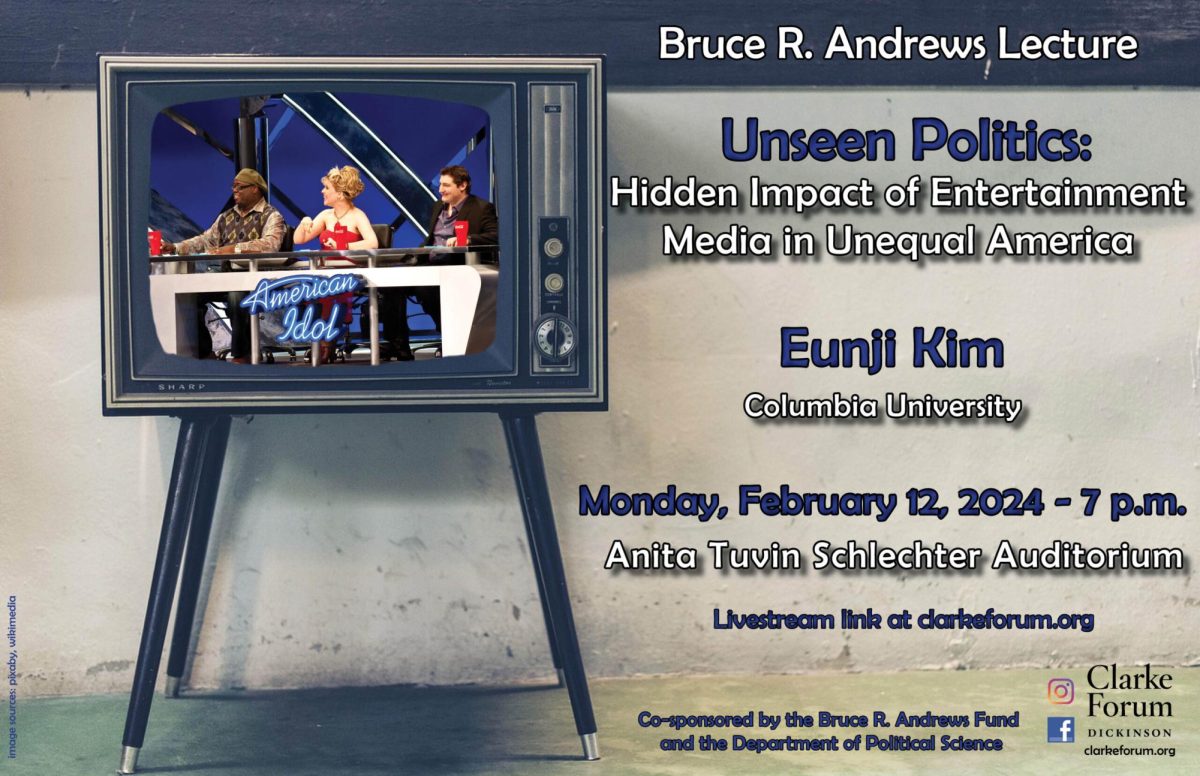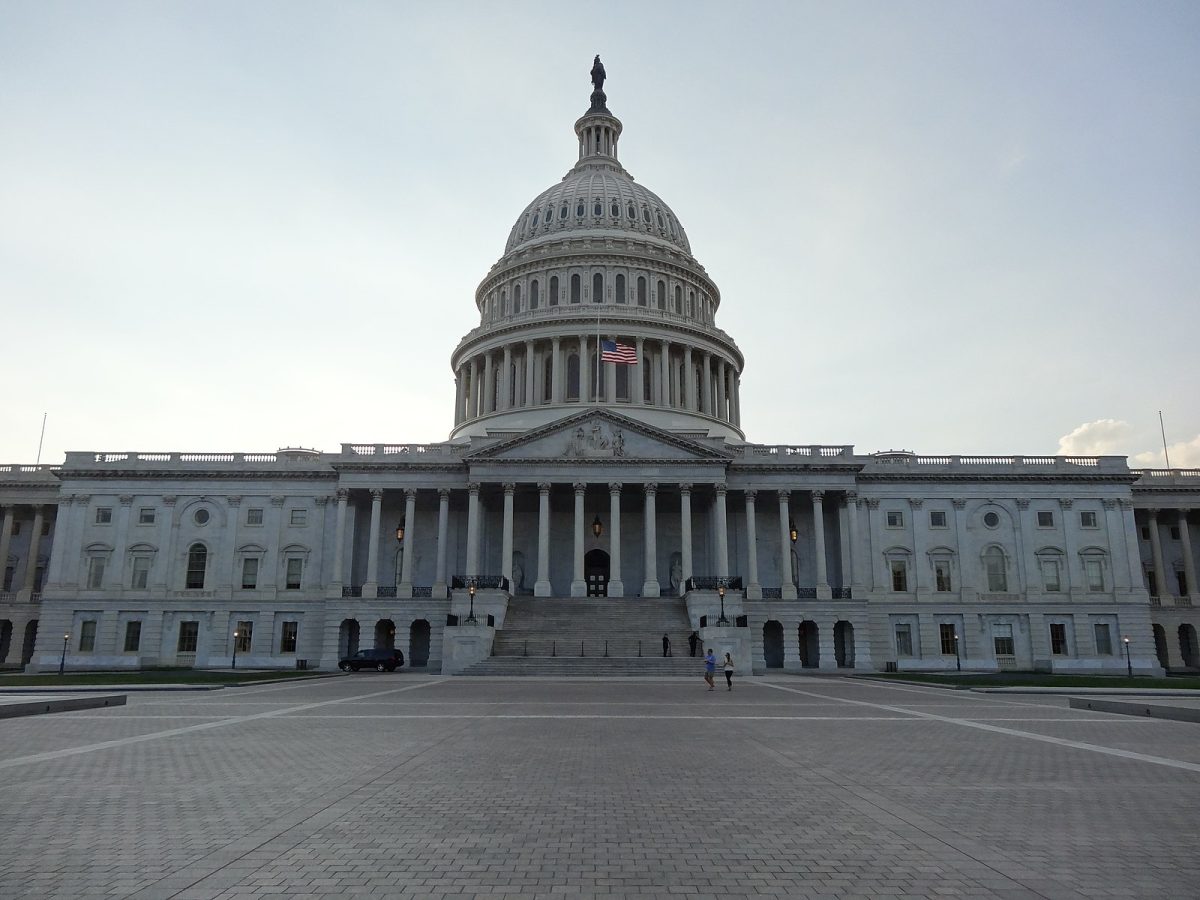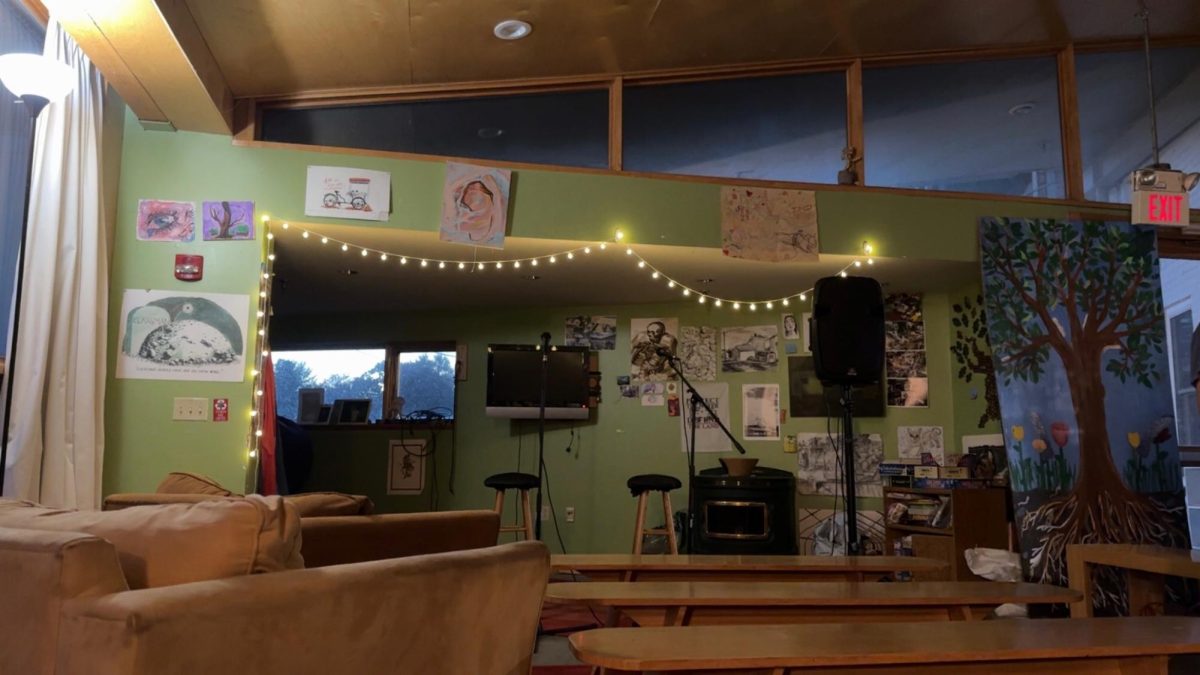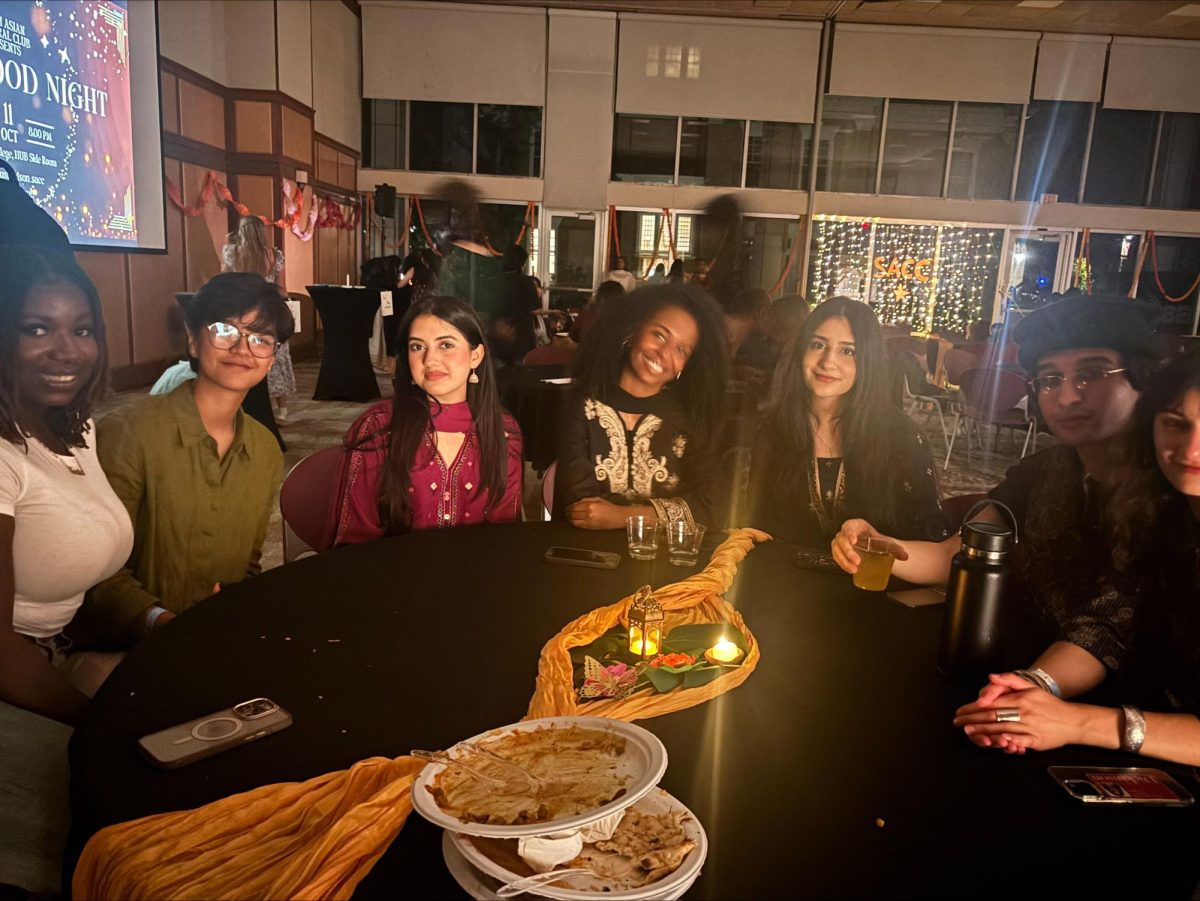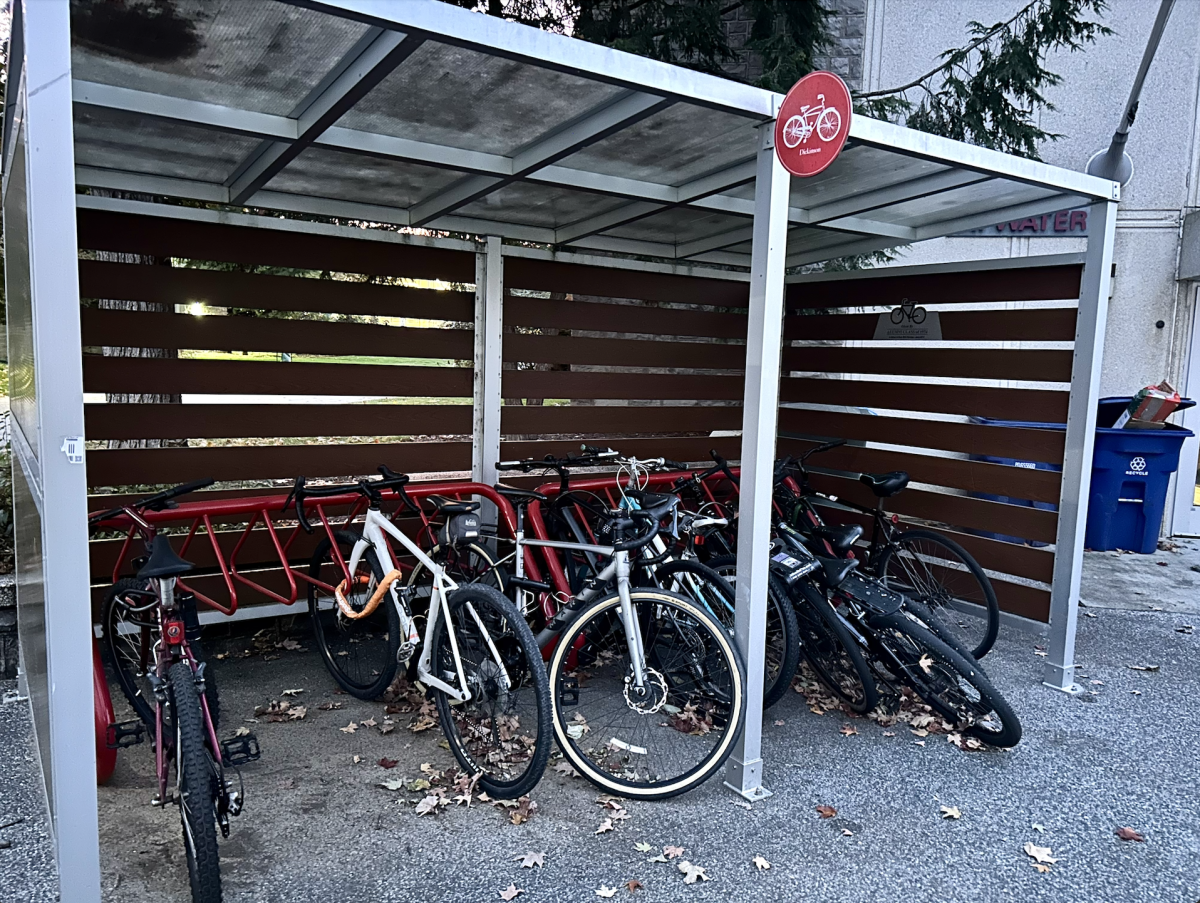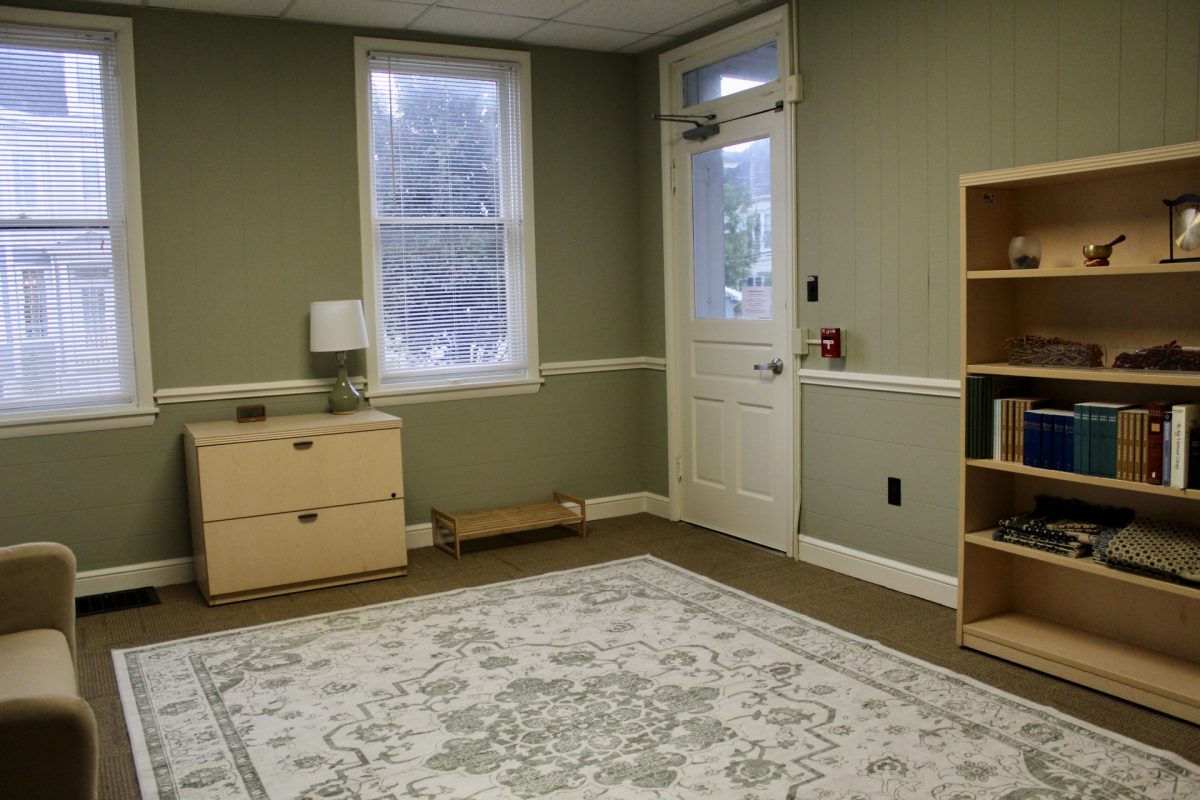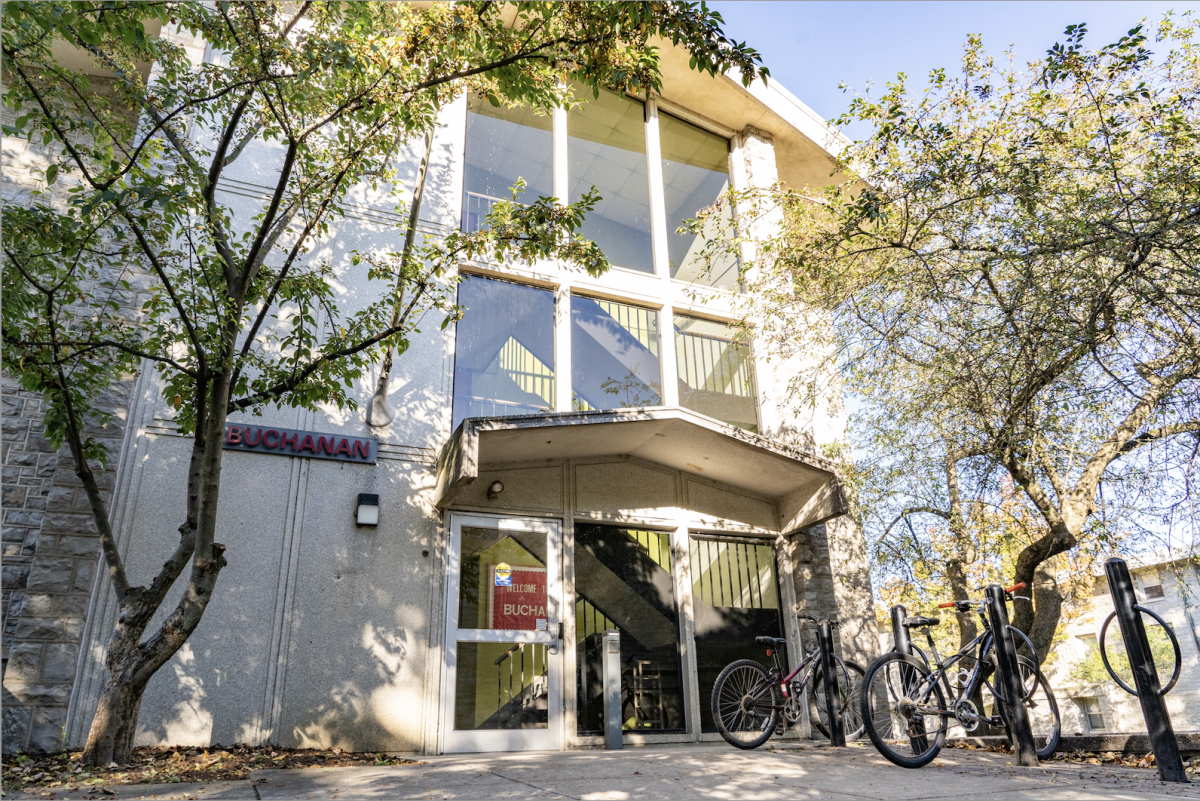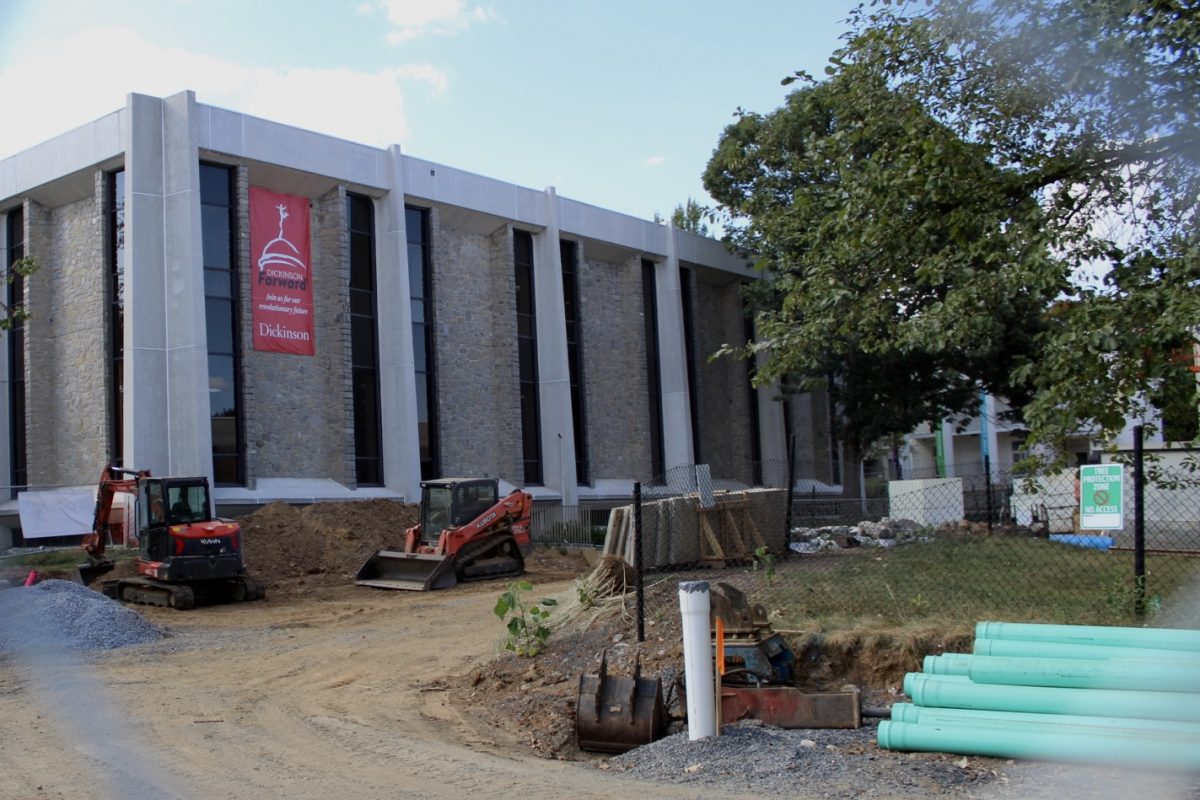Eunji Kim, Assistant Professor of Political Science at Columbia University, spoke at the Clarke Forum about the unknown impact of entertainment media on people’s idea of the American Dream during her lecture on Feb. 12.
Leading with a digestible analogy, Kim noted that many people watched the Super Bowl the Sunday before, and in doing so formed opinions about the game or its halftime entertainment. But were any of us in Las Vegas, where the Super Bowl was held? This also applies to other opinions influenced by the media. Most of us have never met Joe Biden. Most of us have never been to Israel. However, Kim argues, entertainment media subliminally convinces us that we have.
Media effects have been central to the study of politics. In the early 90s, the most popular show in America was “60 Minutes.” CBS, NBC, and ABC evening news were the only options for viewing at 8 p.m. and 9 p.m. 30 years later, we have all of these news sources alongside thousands of other, arguably more entertaining, media options.
Kim argues that news media has come to be seen as both a “primary source of information that shapes our collective perceptions, and a distraction from politics and a cause of active disengagement.” The State of the Union Address, which will be held on March 7, will be competing for attention with reels of cute dogs, someone dancing on TikTok and thousands of TV shows.
According to American Time Use Survey Results, American TV consumption has only been increasing for the past two decades. Meanwhile, news consumption is decreasing. A shocking 96% of internet users said they only read one news article per week, so, despite the polarized political world we find ourselves in, we aren’t thinking about politics all the time. Or, at least, we aren’t consciously thinking about politics.
Lots of TV shows touch on politics in passing, and sometimes, entertainment media offers narratives that counter what news media offers. This often distorts our perceptions, particularly our beliefs in economic mobility.
A Gallup Study found that 70% of Americans are satisfied with the opportunity for a person to get ahead in the United States. Are these people overestimating the chances of upward mobility? The study also found that those who are most disadvantaged by the opportunity for upward mobility, low-income people and people of color, are more optimistic about their chances of upward mobility.
For every five TV shows in America, one is a reality show. The most popular reality shows include “rags-to-riches” programs, like “America’s Got Talent,” “Shark Tank,” “The Voice,” “Project Runway,” and “Survivor.” The contestants on these programs always have a sob story, making their success on the show more rewarding to watch. It sends the message to viewers that, if you just keep believing in yourself, great things will happen––and “great things” is often an idiom for monetary gain.
Kim conducted an experiment where she drove around politically polarized counties in Pennsylvania and New Jersey, stopping at farmers markets and offering people $10 to take a survey in her van. Half of the survey participants, before taking the survey, watched “Cesar 911,” and the other half were exposed to a rags-to-riches treatment condition, which featured “American Ninja Warrior,” “Toy Box,” “Shark Tank,” and “America’s Got Talent.”
Kim found that even the brief exposure, five minutes, to Rags-to-Riches TV programs increased the participants’ belief in upward mobility during the survey. She also found that the experiment resonated more with Republican-identifying participants.



